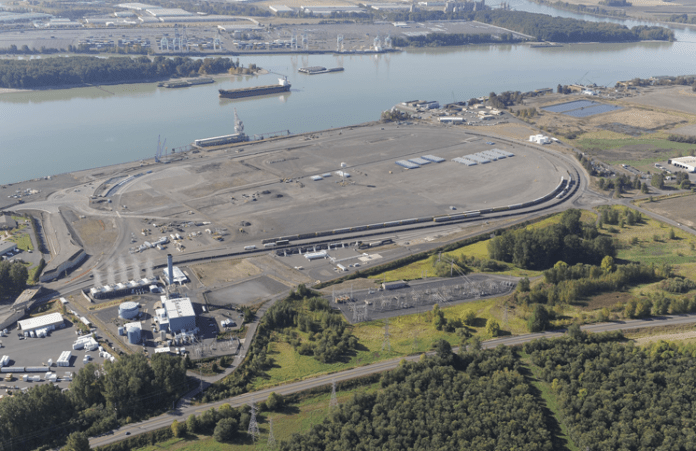Now that public meetings and the public comment period have ended, the Energy Facility Site Evaluation Council (EFSEC) will soon send its environmental impact recommendation to Gov. Jay Inslee, who will decide whether to permit Vancouver Energy’s proposed oil terminal at the Port of Vancouver.
“The close of the [Draft Environmental Impact Statement (DEIS)] kicks the process into high gear,” said Dan Serres, conservation director for Columbia Riverkeeper, a water protection organization in Hood River, Ore. that opposes the terminal. “That process will likely play out over months – maybe later in the winter or spring.”
Members of EFSEC, including multiple Washington agencies, have already or soon will enter an adjudication process, in which members present evidence to EFSEC officials arguing if the project should be approved or denied, said Serres.
Once the adjudication process is complete, EFSEC will send a final EIS to Gov. Inslee. The governor then has 60 days to grant site certification, an umbrella of the multiple permits Vancouver Energy would need to build the terminal.
“We actually think all the information points to a project that can be permitted safely,” said Jared Larrabee, VP and general manager for Vancouver Energy. “We have every confidence that it will be permitted.”
Vancouver Energy – a joint venture between petroleum refiner Tesoro Corp. and transportation company Savage Cos. – hopes to develop and operate a rail and marine transfer facility at the Port of Vancouver, which would receive about 360,000 barrels of crude oil by rail per day. The barrels would then travel by ship to West Coast refineries.
Southwest Washington residents are divided in support for the proposed oil terminal. Some people believe an oil terminal at the port could be operated safely and add jobs to the economy.
If Gov. Inslee permits the oil terminal, the facility would take about one year to complete and would employee 320 contractors for construction, said Larrabee.
But others, including some small business owners and environmental agencies, believe the terminal would hurt the economy and the environment.
“I and everyone in the community would continue to stand in opposition [if the terminal was permitted],” said Chris Read, owner of Arnada Naturals, a natural foods store in Uptown Village. Read is also a member of Vancouver 101, a coalition of about 100 small business owners against the oil terminal. “It’s a likely conclusion that some businesses would leave. You would find [residents] relocating. It would be a chain reaction.”
When it came to submitting pubic comment (the deadline was Jan. 22), organizations from both sides offered additional analysis and research to counter some of the DEIS’s statements.
“The DEIS had a lot of flaws, but in the end it provides enough information to support denying the project,” said Serres. “The next step for EFSEC is to go back and revise their analysis and use all of the input they received to come to a final conclusion – the sooner the better.”
“We provided specific, constructive comments to make sure this is the most comprehensive analysis of potential impacts,” said port CEO Todd Coleman.
“Vancouver Energy is an important project, and the DEIS is a critical step in the review process, the outcome of which will have a profound and lasting impact on operations at the Port of Vancouver and other ports across the country,” he added. “A thorough and accurate review is critical to the community and the port.”
Looking ahead, opponents of the terminal will attend meetings at the port over the next few months to urge the port commissioners to step away from the terminal project, said Serres.
Even if the oil terminal gets the green light, there’s potential for opposition to challenge the decision in court.
“We haven’t gone down that path, because to be honest, it would be so counter-intuitive,” Serres explained.







